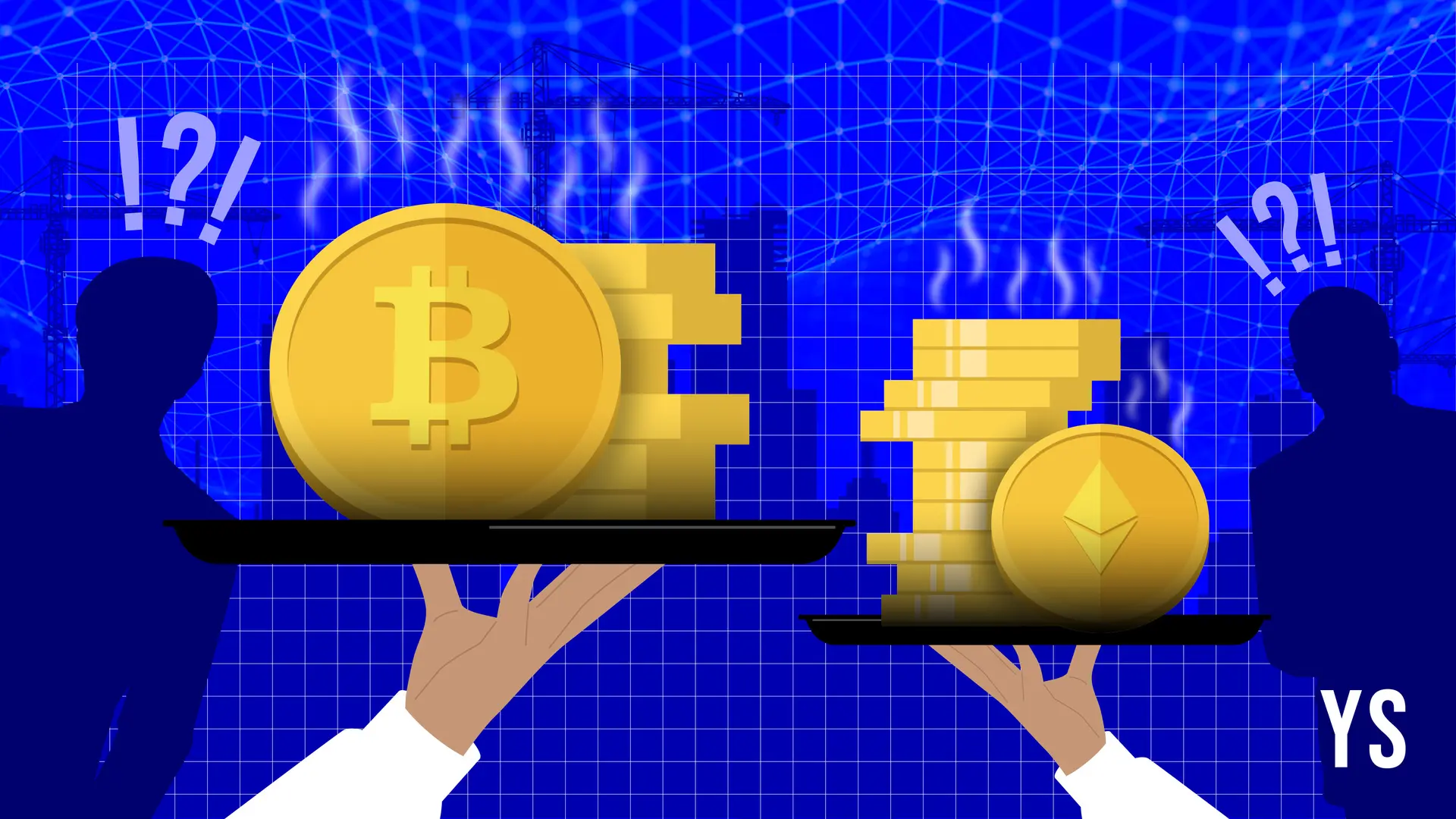[YS Exclusive] Profitability is over-rated, companies are only as powerful as their free cash flow, says Vijay Shekhar Sharma
E-wallets were never top-of-the-mind until November 2016. Overnight, the government rendered high-value currency notes illegal tender with demonetisation, and digital wallets got pushed into the limelight. Paytm and its Founder Vijay Shekhar Sharma made the most of this opportunity, snapping up the lion’s share of a significantly expanded market.
But life, and business, rarely involve smooth sailing forever. Today, 15 months after demonetisation, Paytm faces revived competition from various quarters and while Paytm Mall and Paytm Payments Bank come into their own, people are eager to know: what more, what next?
The Paytm founder believes that “the best way to discover the future is coming very near to it and then seeing it”, and armed with that belief, is looking at advertising and content as potential business opportunities.
In an exclusive interview with YourStory, Vijay Shekhar Sharma talks about life, his philosophy for Paytm, and what would make it a global entity. Here are edited excerpts.
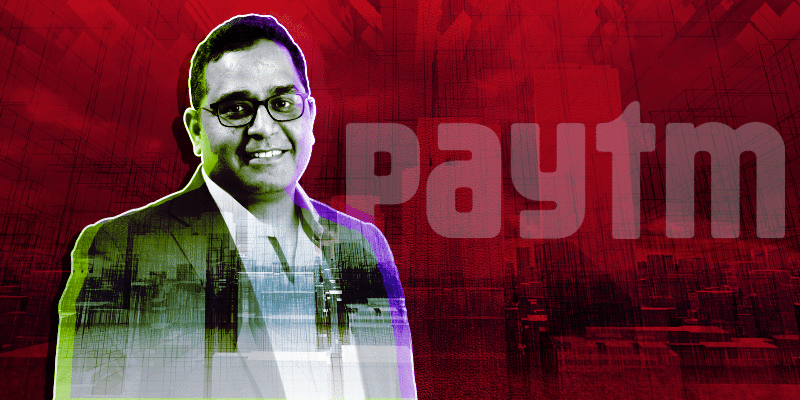
YS: It’s been quite a journey (Paytm was formed in 2010 and parent company One97 Communications in 2000). At this stage how do you envisage Paytm’s future?
VSS: Anyone who assumed us to be a wallet company, a recharge company, a payments, and a commerce company thereafter, is understanding that those are not our only businesses. We have an opportunity of being an internet ecosystem player, which can play out in as many segments of the internet as possible.
We can become the champion of consumer needs in this country better than anybody else.
YS: We have seen you expand holistically in that direction. Paytm is not just a financial ecosystem play anymore. What is the larger plan?
VSS: The presentation from Day One, when we wanted to build Paytm, had three components – Commerce, Advertising and Content. That is where the journey will lead. Three different verticals: commerce-led systems which are payments and financial services, content-led ecosystems, and advertising and marketing-led ecosystems. Our business offering today can be split into a customer’s money needs. They pay, they buy, invest, they lend, and they deposit. That is the whole circle of money that we are offering.
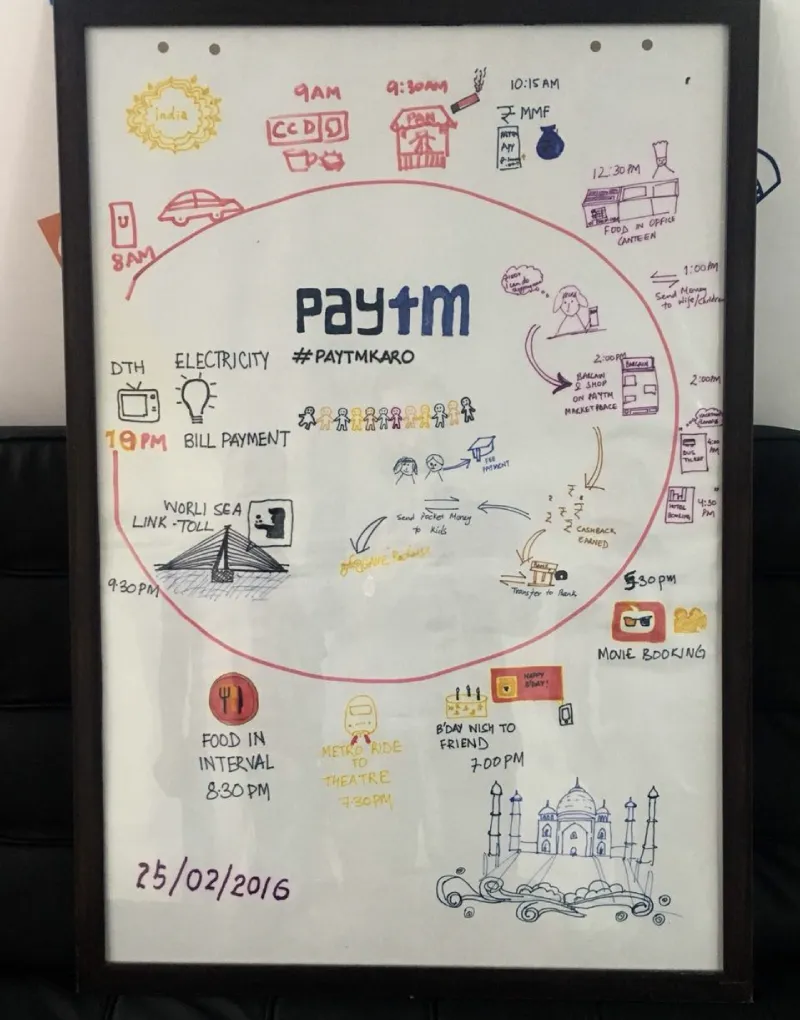
YS: What are the opportunities where Paytm can augment its services in terms of a consumer’s consumption pattern?
VSS: It is the whole circle of life we look at, which gives us an opportunity to capture as much as possible and offer as much possible.
It is an interesting circle. When a consumer comes in to make payments, they can do a lot more like book bus and movie tickets on Paytm. In less than a year of launching these categories, some of these verticals are nearly number two in their (respective) categories. (And) this is thanks to the consumer traffic we saw in such short span of time. Today, we sell about 10 million travel services in a quarter. In the entertainment category, we are reaching the size of the market leader. So, at an industry level, I feel that these platforms will grow further. These were byproduct businesses but are now becoming huge.
We also started to acquire companies and build an ecosystem of all (these) extensions. In fact, we will soon announce one last ticket company acquisition.
In an age where everything is instant, the consumer wants things to be done with one touch, so being a trusted partner of the customer is an incredible asset. We see the whole life of the consumer, and then see where else can we augment our services.
YS: Is your content strategy kicking in with your gaming company GamePind?
VSS: Totally. We are clear that content is an obligation of a customer's daily life. When a consumer opens Paytm for a transaction, we don't want to restrict them to just that. We want to make something available to them so they can keep coming back. That is the obligation which is making us go into content.
At present, we have had payment grow into commerce, and then into the consumption of financial services. However, content will come ahead of payment. This is where entertainment, content, messaging tends to fit in. We will not stop at what we have launched. We will continue to mend, modify, change and relaunch. For example, we are just updating our Inbox section.
You have seen us do some public experimentation around content. We built a gaming company - GamePind. And we raised Rs 100 crore for it, which is not a small amount in any industry. By mid-year, we probably will do some content pieces in the next app updates.
YS: What can we expect in terms of advertising?
VSS: If you were to see the internet today, it is victimised with bot clicks. But on apps - ecommerce apps, or transaction-led apps - at least you know you are getting humans. We get almost 100 million people on our app every month. That's a sizeable customer base. We will add bits of advertising.
We offer it (advertising) to merchants and brands selling on our ecommerce platform. We will also open it to a larger set of brands, but a lot has to be done before that.
There is no secret that at present, we are our own customers. When we want to offer it to a third party, it will be done in a different way.
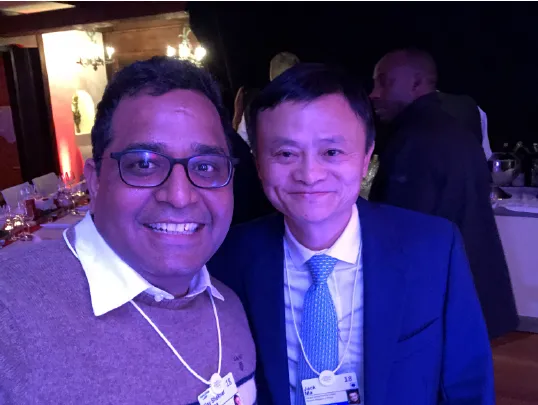
YS: How will you build these businesses? Will you go the acquisition route, or build these verticals internally, which has mostly been the case?
VSS: Every business goes through a Build-Buy-Partner method. In Paytm’s case, we are always the first set of builders. We have rarely gone ahead and acquired a category.
YS: What is the edge that Paytm has when it builds a category, as against an acquisition or a partnership?
VSS: We want to control the base building blocks, which eventually gives us flexibility and control. That is why we are builders. Recently, there was a chance for us to be an investor or make acquisitions in the travel category. However, we realised that there will be a lot of things we will have to change.
The reason we are getting the opportunity to become what we are is that the world is moving from desktop to mobile. In the desktop age, the checkout was different. You would go to the cart first and then the payment page. In the smartphone age, the checkout process is just the opposite.
You first enter the payment, whether it is a ride-sharing app, a food app, or anything, and then checkout (with) one click...The very fact that Paytm did payments first was because we thought payments will be the anchor…for many transactions.
YS: How do you see Paytm’s strategy changing now, with global competition coming in?
VSS: It is the stage that a business is in which makes the strategy for (that) moment. There was a time when we wanted to raise money and be the ones playing the big game. And personally, I think that everything that happened until September of 2017 was like earning a ticket to the big game.
Now we are playing in a big game, and (it) involves tens and thousands of crores. And that is at least what the entry-level to this business is now. Today, for KYC obligations we need to incrementally add another 10,000 members to the team, which is a huge investment.
It has been a journey. When I raised Rs 10 lakh, we were playing a game of that size. I remember our world would change because we would get Rs 2.5 lakh of payments on our network.
Interestingly, the game moving forward is that we are a technology company, a financial services company, not to forget a payments company, (which is) the acquisition tool – the customers have come. Now our strategy is (about) what is it that we are doing with (that customer base).
Are we fighting a tech company, or are we fighting a financial services company? I don’t really know. But, I definitely know that we are fighting the consumer's current state of affairs, which simply means that a number of people will do that. We just have to be superior, more liked and loved by consumers.
YS: What about revenues? How do you see Paytm contributing to a steady income flow?
VSS: We are for free cash flow, not revenues. I think revenue or profitability is an over-rated math. The word is actually free cash flow. Companies are as powerful as the free cash available in their pocket.
The good thing that I can say is that net of all marketing and cash backs, we are still profitable. The cost for us is people, and augmenting tens and thousands of more, like I said. We are increasing (our) costs because we see this as an opportunity to reach out to every nook and corner of the country.
YS: What are the most promising lines in terms of revenues?
VSS: There is no secret that financial services is not an aggressive market today, so (it) makes a lot of sense for us to expand in it. It is not an extremely competitive category, where we need to challenge the profitability or the market share.
However, our business plan is about incremental customer acquisition.
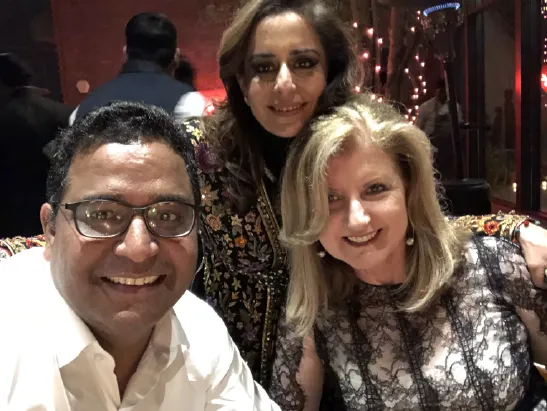
YS: What about advertising? Isn’t that promising too?
VSS: I personally have big expectations from this line item, because in the end, if you see business models of large companies, advertising is an extremely profitable contribution.
YS: Do we expect Paytm to not be profitable any time soon because of the investment in growth?
VSS: I have always said profitability is a choice we have today. We have profitability at a contribution level, and at an EBITDA (earnings before interest, tax, depreciation and amortisation) level, and we'll always be investing. We have money for the next four years spending the way we are now.
So, we don’t have an obligation or an interest to chase profitability, because this is a market making-moment not a profitability-chasing moment.
YS: When you see Paytm growing at this rate, what do you see as the biggest challenge for the group today?
VSS: I have always said that the biggest challenge for Paytm is that we will never know when to stop expanding. It will always be a horizontal versus vertical expansion as a choice. In 2018, we will be growing vertically rather than horizontally and would definitely go deeper into everything instead of starting something new.
Let’s say we will launch more commerce categories or will become more dominant in what we already have. And this is a cycle that Paytm follows all the time. Grow horizontally, and then go deeper in each of these categories.
YS: Will 2019 be the year of content and advertising for Paytm?
VSS: For 2019, we will see at the end of 2018. The best way to discover the future is to come really near to it, and then see it.
YS: When do we see Paytm going global? Is that on the cards immediately?
VSS: Apart from Canada, we will be going to other countries. It is our obligation to take what we have built in India to other countries. We are looking to expand to some other countries, but we have to build something great and take it to those countries.
YS: Does taking this global approach impact your product strategy?
VSS: Yes, for sure. We are going to build products that are great and will not be just Indian but also global. There is nothing less about an Indian conglomerate.
YS: We see some maturity in the Indian startup ecosystem. How do you see the market grow moving forward? Are we looking at something like China, with just limited three to four companies ruling the market?
VSS: We won’t just have three to four ecosystems, but close to five or six. There are the Search, Social, Commerce and Payment-led ecosystems; there is Google, Facebook, Jio, Flipkart, Amazon. These are ecosystems. It won’t be a closed ecosystem like China.
What we need to make sure is that none of these systems, which are monopolies, monopolise other ecosystems and don’t let them grow. We all need to give space to the sixth or seventh or the eighth ecosystem to form and grow. This is the vibrancy of ecosystems.
The point is that if we don't have any of our Indian companies in this ecosystem, then we are basically building a market for outsiders. No innovation will be built out of this country. So, the ‘Make in India’ movement is for the intention of making within the country. That is what I am saying, otherwise we will have nothing left in the country.
Singapore created DBS Bank, SingTel... the point is that even a small country can create a local powerhouse that can later become the economic wheel of growth for the country. We have the choice right now, the opportunity and the obligation to create an ecosystem that will become the champion of technological advances.
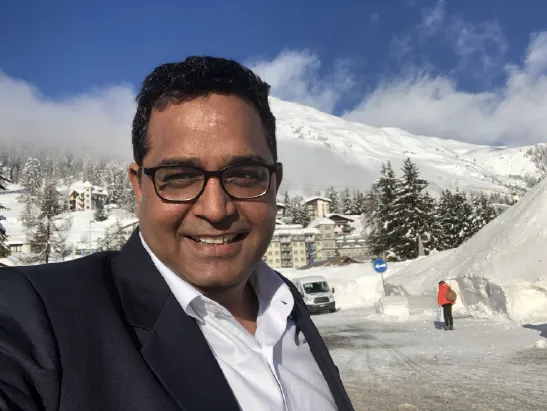
YS: Won’t Paytm be looking to capture two-three of these ecosystems?
VSS: I think that there is no secret that we want to be the top-most choice of customers. Our dominance will be in a few categories, and we will be challengers in the other few categories. It's not that one ecosystem that takes everything.
YS: How do you see the future of Indian companies?
VSS: The future is bright, the future is good. The future of Indian companies is that they will become a dominating force to reckon with.
And the classic aim of every company is to continuously fight the next level of the battle. Privileged are those who get to play in the fight, and superior are those who get to win the fight.
We all will find out what it really takes to fight these battles. It will be an interesting battle to win. I think 2019 will be the year that Indian startups will come of age, and no longer be looked at as third world startups. Until now, you would look at these startups as a niche market or a small market. I think by 2019 or by 2020, Indian companies will be seen as huge, sizable companies.
YS: Do you see the scenario changing again with global competition?
VSS: The Indian consumer internet ecosystem is maturing, and that is why every company in the world wants to play in it. This is the truest testing time for the whole ecosystem, and the government, to take a call how they want it (to evolve). It is my suggestion that we should allow foreigners to come (and) invest, and not actually hijack the agenda.


![[YS Exclusive] Profitability is over-rated, companies are only as powerful as their free cash flow, says Vijay Shekhar Sharma](https://images.yourstory.com/cs/wordpress/2018/03/VSS.gif?mode=crop&crop=faces&ar=2%3A1&format=auto&w=1920&q=75)
